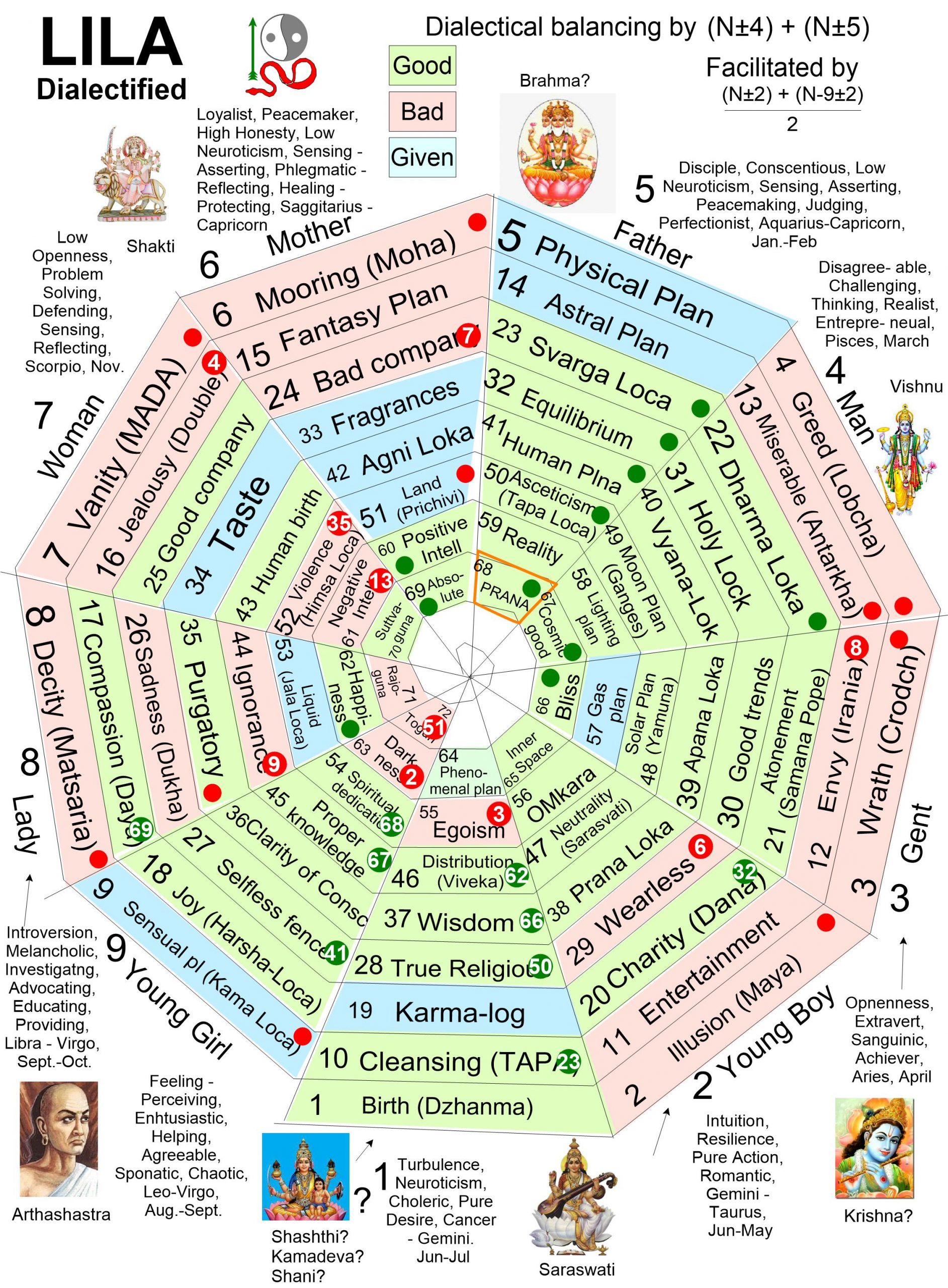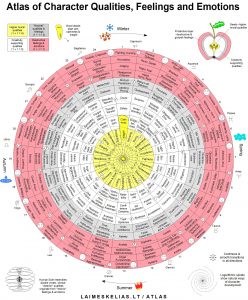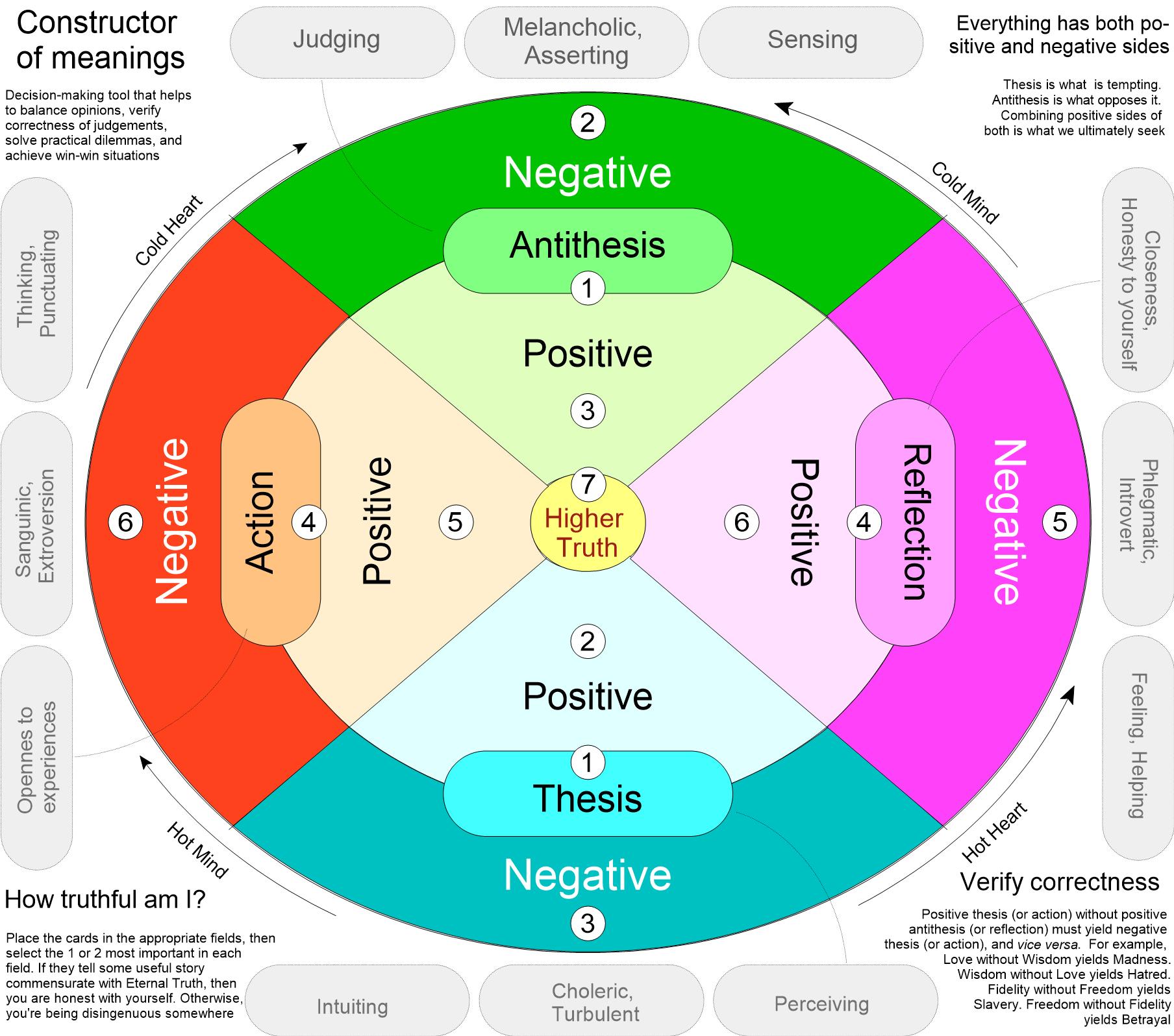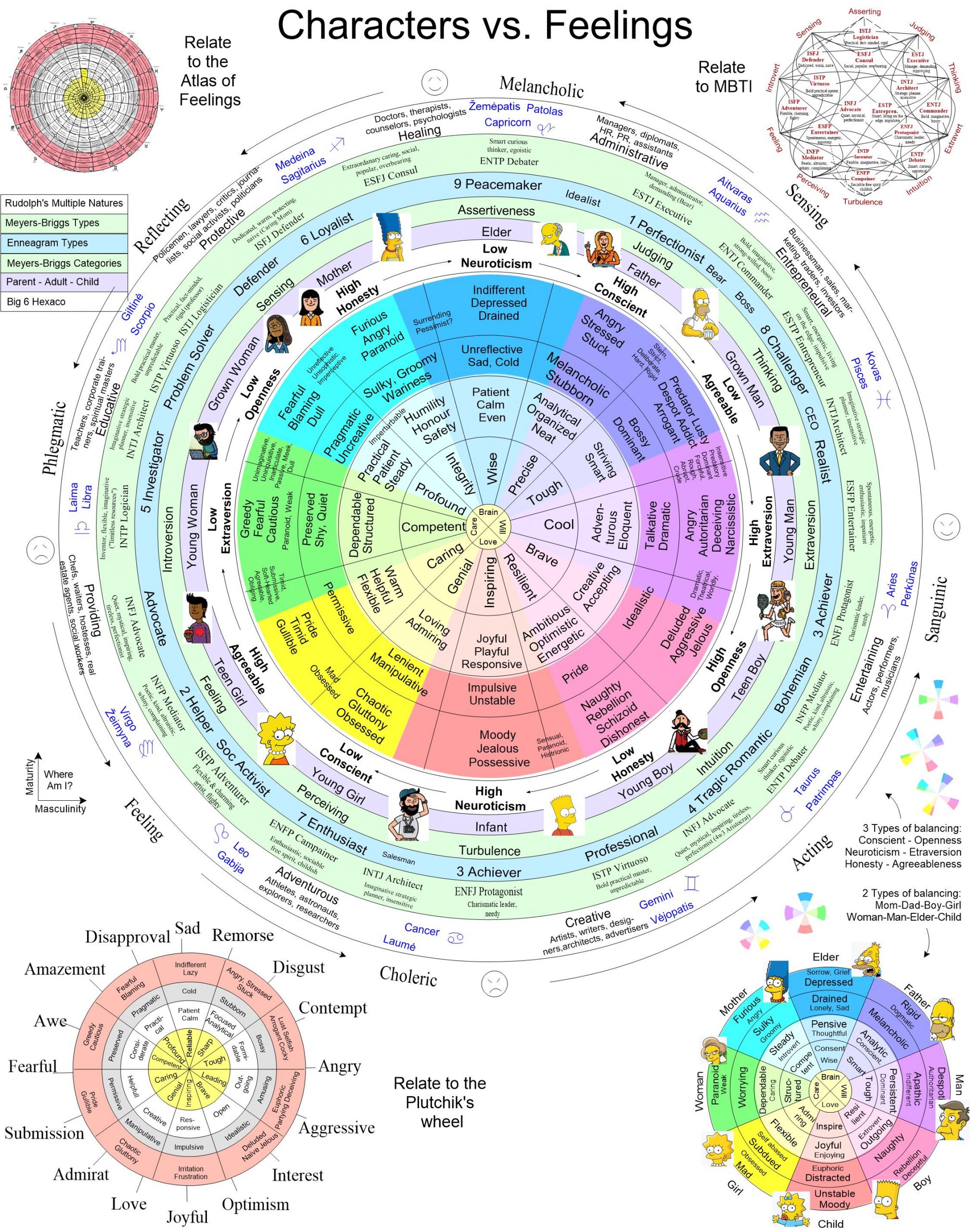Information and Methods’ Hub for Dialexity

1) Quick Analysis: Identify existing and desired typologies with automated APIs:
Trust Tensions
Family vs. Work
To Buy or Not to Buy?
2) In-depth Analysis: Detailed examination revealing self-help mechanisms, moral guidance map(s), outcome probabilities, and refined recommendations. Examples:
Trust Tensions
Family vs. Work
Other Self-Help
Dialectical Pros & Cons
3) Stupor / Conflict Resolution using the exclusive Dialectical Engine:
Enhancing Reasoning
Family vs. Work Self-Loop
Obsessive Fixation Self-Loop
4) Self-profiling and tuning using various ‘mapping spaces’:
Emotional Tuning
Character Tuning
Deeper Mindset
5) Guideline Compatibility: Assess the alignment with various guidelines, including your own principles (see Examples & Applications)
6) Text Refinement: Balancing Emotion and Perspective:
Reframing Space
Parallel Reframings API
Other possibilities:
7) People Matching: Provide descriptions of (or by) two individuals and receive recommendations based on underlying MBTI types and/or socionic’s compatibility tables (see e.g. socionics for people)
8) Dialectical Synergy Analysis: Construct common grounds to resolve profound conflicts of interests. Examples
9) Further ideas for the future – Gamified Self-Analyses:

a) Based on the “dialectified” Leela game with virtual dice, discover your supportive and deceptive “spiritual traits” (just an idea – programmng is required)

b) Utilizing the Atlas of Feelings and virtual cards, decipher your distinct “emotional traits”.

c) Engage in the Dialectical game to unravel your “success story” and measure your self-truthfulness.
10) See also:

Matching people based on their values, moods and characters. It uses atlases of feelings and characters that automatically suggest how a given mood or character can be improved, and which friends can help each other grow (supplementing the existing “tables of relations”, e.g., from socionics for people).

